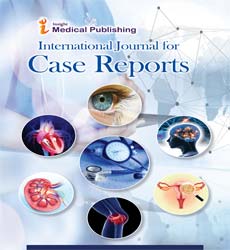Breast Cancer Surgery during COVID-19 Pandemic
Makoto Ishitobi*
Department of Breast and Endocrine Surgery, Osaka International Cancer Institute, Osaka, Japan
- *Corresponding Author:
- Makoto Ishitobi
Department of Breast and Endocrine Surgery, Osaka International Cancer Institute, Osaka, Japan
E-mail: m-iehstobi@med.mie-u.ac.jp
Received Date: December 03,2021; Accepted Date: December 16,2021; Published Date: December 23,2021
Citation: Ishitobi M (2021) Breast Cancer Surgery during COVID-19 Pandemic. Int J Case Rep Vol.5 No.6
Commentary
All older women considering breast cancer surgery should talk about the risk of a reduction in functional status after surgery. Surgery's harmful effects on physical activity may be mitigated with an organised exercise programme. In the domains of quality of life, fatigability, and cognition, further research is needed.Prioritization of care has been criticals incethecommencementofthepandemictoreducetheriskofCOVID19infectionrelatedmorbidityandmortalityinbreastcancerpatients.COVID-19 related risk in patients following breast cancer surgery, on the other hand, has yet to be investigated. In the West of Scotland, we looked at the safety of breast cancer surgery during the COVID-19epidemic.IntheUnitedStatesandaroundtheworld,breastcanceristhemostprevalentcancerdiagnosedinwomen.AccordingtotheAmericanCancerSociety,333,490newinstancesofbreastcancerwillbedetectedinbothwomenandmenthisyear.
In the treatment of breast cancer patients, oncoplastic breast surgery has become the gold standard. The guidance on the best breast surgical oncoplastic and reconstructive practise at each stage of a patient's journey, based on current evidence, to all members of the breast cancer multidisciplinary team. Oncoplastic breast cancer surgery combines oncologic and aesthetic procedures to remove malignant tumours from the breast with sufficient clear margins while maintaining or restoring a pleasing breast contour and shape. Various strategies have been presented thus far, each with its own set of benefits and drawbacks. For unifocal, early-stage breast cancer, breast conserving surgery is the therapy of choice. Over time, the ability to provide BCS to a broader subset of patients, including those with multifocal/multicentric malignancy and extensive ductal carcinoma in situ, has emerged, particularly in patients undergoing joint oncoplastic reconstruction and those receiving neoadjuvant therapy. However, in this patient subset, localisation approaches using multiple radioactive seeds for bracketing have not been confirmed. Breast lymphedema after conservative breast surgery has been associated to a number of risk factors, including BMI, breast size, tumour size, tumour site, type of surgery, and adjuvant therapy. Manual lymphatic drainage, self-massage, compression bras, and Kinesio taping are all possibilities for decongestive lymphatic therapy. Despite the fact that breast lymphedema is a fairly common problem, there is no definite description or treatment alternatives. Breast cancer treatment with primary endocrine therapy is only indicated for older women with a short life expectancy. Many older women, however, choose endocrine therapy due to worries about frailty and potential function loss following surgery. The research on the effects of breast cancer surgery on quality of life, tiredness, and cognition was mixed. The rapidly spreading coronavirus infection (COVID-19) has infected all parts of health care systems throughout the world. The pandemic is predicted to have the least impact on developing countries, which have a weaker healthcare system and little resources. Cancer is usually identified late in its progression, with greater case fatality rates than in high-income countries. Cancer management in underdeveloped nations is complicated by delayed diagnosis, a lack of cancer knowledge, low adherence to therapy, and unequal or limited access to treatment.
Open Access Journals
- Aquaculture & Veterinary Science
- Chemistry & Chemical Sciences
- Clinical Sciences
- Engineering
- General Science
- Genetics & Molecular Biology
- Health Care & Nursing
- Immunology & Microbiology
- Materials Science
- Mathematics & Physics
- Medical Sciences
- Neurology & Psychiatry
- Oncology & Cancer Science
- Pharmaceutical Sciences
